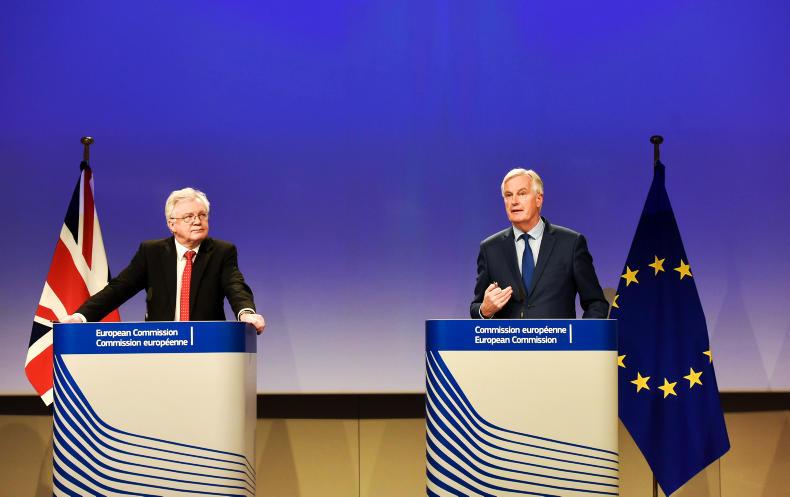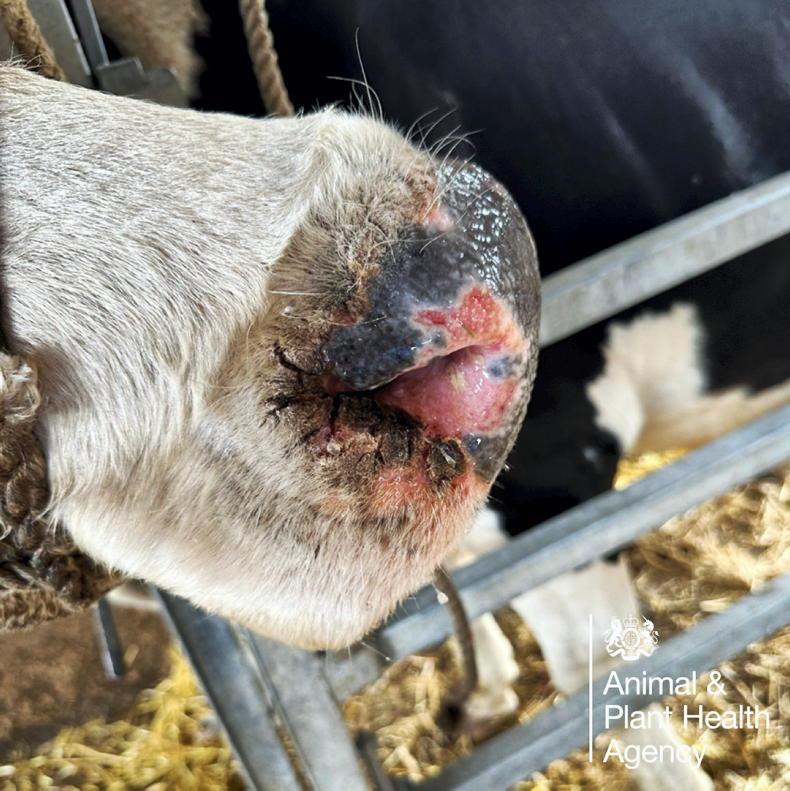Brexit has dominated news bulletins this week but despite the noise and column inches, nothing has really changed. This is what is most worrying for Irish farmers, the sector in the entire EU28 that is most exposed. For Irish farmers, there is no such thing as a good Brexit; it is a case of what Brexit causes least damage.
And the Brexit that causes least damage is one where the UK chooses to stay aligned to the EU customs union, whatever way they phrase it, and the single market, again under some other name.
The difficulty is that while these would satisfy the needs of Irish farmers by keeping market access similar to what it is at present, it would seriously constrain the UK from doing its own thing with countries outside the EU. In fact, it is correctly identified as the worst of both worlds for them: they would be constrained by EU rules yet they are no longer be able to shape these rules because they are on the outside.
Much is made in mainstream news media about dealing with the land border on the island of Ireland - the UK’s only land interface with the EU. The EU is willing to be flexible with the status of Northern Ireland but this causes huge political difficulties with pro-UK citizens in Northern Ireland and indeed in mainstream UK politics as well.
Irish border
Something that worked for the border on the island of Ireland is nowhere near enough for Irish farmers. True it would enable milk and lambs come south in huge volumes as they are doing at present, plus pigs and cattle could still go north. The problem is that in the context of the entire Irish agri-food industry, these are just a fraction of the overall trade and this overall trade is based on the island of Ireland doing business with Britain. Over half all the main commodities that leave Ireland go to Britain and two thirds of sales from Northern Ireland go to Britain as well.
Therefore, a border in the Irish sea presents a problem not just to Unionists in Northern Ireland but to the Irish agri-food industry and farmers as well.
Firm stand by EU
While the UK wrestles internally with what it wants in a future trade deal with the EU, it is clear from comments made by the EU lead negotiator Michel Barnier that the EU is unwilling to show much flexibility. Clearly it is determined that the UK will not have the best of both worlds, so that means much difficult negotiation lies ahead with no guarantee of a satisfactory outcome.
A collapse in negotiations and hard Brexit can no longer be dismissed as too ridiculous to happen. It is difficult getting to a UK definitive position and even then it is more difficult envisaging the EU accommodating that. It is increasingly likely that the end game will be the EU presenting the UK with a take-it-or-leave-it option later in the year and neither is good for future trading relations. If they leave, it means trading under WTO rules; if they accept it grudgingly, the relationship will continue to be fraught.
Irish farmer position
Meanwhile, Irish farmers are left in limbo. We can explore new markets all we like and diversify as much as possible – that is simply good business sense even if Brexit never existed. The reality is that we cannot substitute half our present markets across all commodities with new markets. It will be a case of buying our way into existing EU and international markets, devaluing the price for Irish and EU farmers alike.
Brexit is the unwinding of a 30-year-old trading relationship and to counteract its effects, Ireland and the rest of the EU need to have contingency plans in place using support mechanisms that were last used 30 years ago. That means intervention buying of commodities and reintroduction of market support mechanisms such as export refunds and private aid storage.
Such measures would not be popular with the WTO but it would have to live with it in the short term at least. After all, they are having to live with the US president imposing tariffs at a whim, so they cannot be unreasonable with the EU tackling a problem that was not of its creation.








SHARING OPTIONS